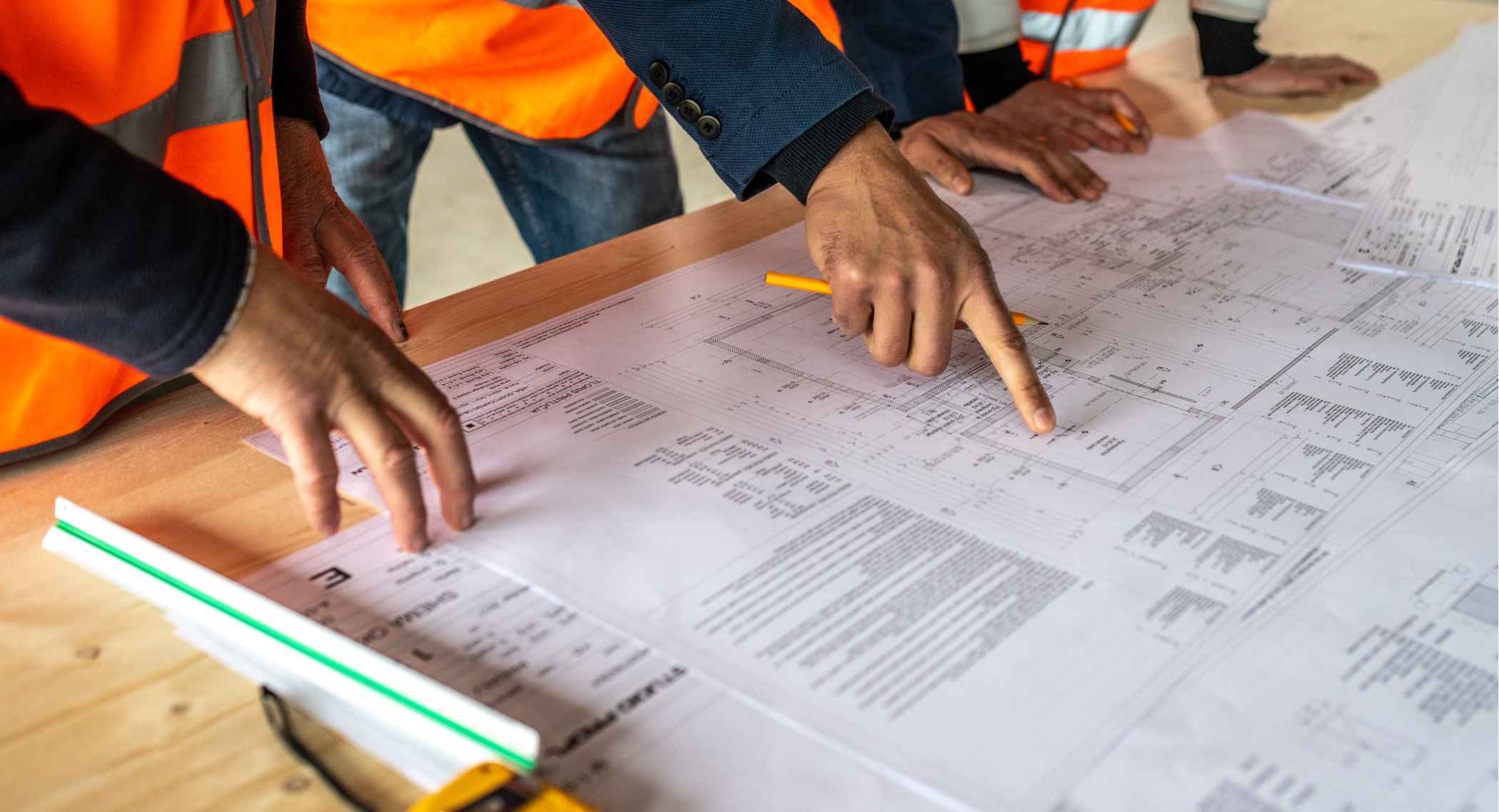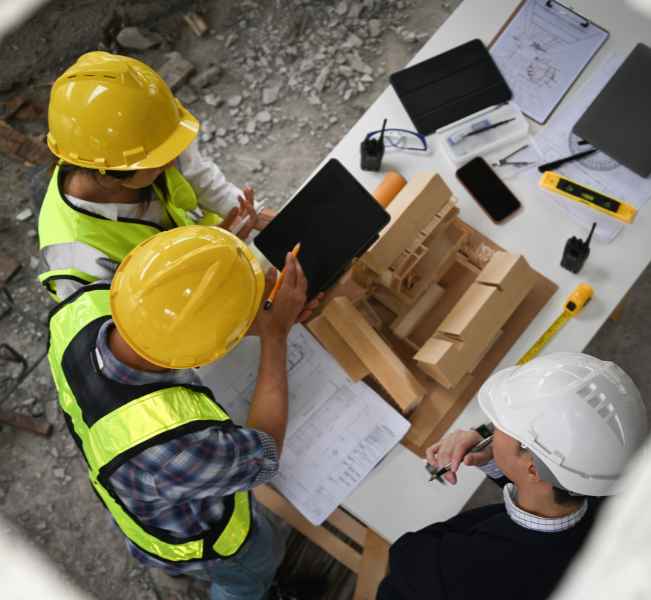
-
By ABS IRON
-
febrero 8, 2024
- 0 Comment
From Vision to Reality: The Importance of Pre-Construction Planning
Behind every successful construction project lies a well-executed plan. Pre-construction planning is a critical phase that transforms an initial vision into a structured roadmap, ensuring that all project goals are met on time, within budget, and with minimized risks. At ABS Iron, we understand that proper planning is the foundation of success for projects both large and small.
What Is Pre-Construction Planning?
Pre-construction planning involves a series of preparatory steps aimed at defining project scope, estimating costs, assessing risks, and coordinating resources. During this phase, architects, engineers, project managers, and contractors work together to create a blueprint that guides every stage of construction.
This process ensures that potential challenges are identified early, allowing for solutions to be developed before work begins on-site.
“A successful project begins long before the first beam is set in place. It is in the meticulous planning, risk assessment, and resource coordination that the foundation of excellence is truly laid.”
Daniel Clarke
Key Components of Pre-Construction Planning
1. Accurate Project Estimation
One of the most crucial aspects of pre-construction planning is providing accurate estimates for time, costs, and resources. Itemized budgets are developed to account for materials, labor, equipment, and contingency funds, helping clients avoid unexpected expenses.
An accurate estimate also aids in securing financing and ensures that resource allocation aligns with project milestones.


2. Feasibility Studies
Feasibility studies assess whether the project can be successfully executed within the defined parameters. These studies involve evaluating structural designs, material availability, and site conditions to confirm that the project is both practical and achievable.
If potential issues are identified, adjustments can be made to the design or schedule to enhance project viability.
3. Risk Assessment and Mitigation
Every construction project carries risks, such as delays, cost overruns, or safety concerns. During the pre-construction phase, we perform a thorough risk assessment to identify these potential challenges.
Once risks are identified, we develop mitigation strategies that include contingency plans, safety protocols, and resource management practices to minimize disruptions and ensure smooth execution.
4. Timeline Development
A clear project timeline is essential for coordinating activities across multiple teams and phases. Our project managers create detailed schedules that outline critical milestones, deadlines, and dependencies, ensuring that each task is completed on time.
Regular progress tracking and updates during the construction phase help maintain alignment with the original timeline.
5. Resource Coordination
Successful projects rely on the efficient use of labor, materials, and equipment. Pre-construction planning helps allocate resources strategically to prevent delays caused by supply chain disruptions, labor shortages, or equipment breakdowns.
By coordinating with suppliers and contractors early, we ensure that all resources are available when needed, reducing the risk of project delays.
Why Is Pre-Construction Planning Important?
Pre-construction planning offers several critical benefits:
- Reduced Risks: Identifying challenges early helps prevent costly surprises during construction.
- Improved Budget Control: Detailed cost estimates and resource allocation minimize financial risks.
- Streamlined Execution: Coordinating teams and timelines reduces delays and ensures efficient project progression.
- Enhanced Quality: By addressing design and structural concerns early, we ensure higher-quality outcomes.
With these advantages, projects can move from vision to reality with fewer obstacles and greater success.
Technology in Pre-Construction Planning
Modern technology plays a significant role in enhancing pre-construction planning. Tools such as Building Information Modeling (BIM) and project management software enable teams to visualize designs, simulate construction processes, and track progress in real-time.
These tools provide valuable insights that help identify potential issues and optimize project strategies, ensuring better decision-making throughout the construction process.
ABS Iron’s Approach to Pre-Construction Planning
At ABS Iron, we take a collaborative and detail-oriented approach to pre-construction planning. Our team works closely with clients to understand their goals, assess risks, and develop customized strategies for project execution. Our services include:
- Accurate Estimations: Providing detailed budgets and resource plans.
- Risk Mitigation: Identifying and addressing potential challenges early.
- Timeline Development: Creating realistic schedules with clearly defined milestones.
- Feasibility Analysis: Ensuring that the design is practical, cost-effective, and achievable.
Our expertise in pre-construction planning has helped clients complete projects on time, on budget, and with exceptional results.
Real-World Example
Consider a commercial development project requiring a complex steel framework. Without proper pre-construction planning, the project could face delays due to material shortages or unforeseen design flaws. However, by conducting feasibility studies, risk assessments, and resource coordination during the pre-construction phase, these risks are minimized.
As a result, the project progresses smoothly, with components fabricated and installed on schedule, meeting both structural and design specifications.
Conclusion
Pre-construction planning is an indispensable step that transforms a project from a concept into a well-defined plan. By investing time and resources into this phase, you can prevent costly setbacks and maximize the chances of project success.
At ABS Iron, we help clients move their projects from vision to reality through meticulous planning, risk management, and expert coordination. Trust us to be your partner in building strong foundations for the future.
